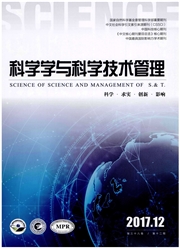

 中文摘要:
中文摘要:
在技术标准化的实施中,普遍存在着技术领先者对后进者的技术溢出,所以,后进者试图通过专利技术许可实现自身的技术积累和创新。在合约理论的框架内研究了标准化技术许可的演进:采用一个双边序贯投资模型,刻画了许可双方在单向许可下的得益和投资激励,并导致了劫持的后果。而后,基于后进者对核心技术进行局部改进的假设,引入回馈许可机制,并分别考察这一制度下许可双方的收益和研发状况。研究指出:(1)由于后进者谈判力的提升,领先者愿意与之进行交叉许可;(2)上述劫持被克服,后进者的投资和研发激励均得到提高。最后,对后进者提出了进一步的政策建议。
 英文摘要:
英文摘要:
In the enforcement of technological standardization, there always exists technology spillover between technology leader and follower. Thus, some follower tends to achieve its own technology accumulation and further innovation through technology licensing. Therefore this paper attempts to make a contractual study on the course of technology licensing: a model of sequential bilateral investment was applied in the sense of incomplete contract, firstly characterizing the profit and investment incentive of the two parties in one-side licensing ,and then resuhing in hold up. By the assumption that the core technology was modified by the follower, the grant-back licensing was introduced, and the two parties' profit and R&D were investigated respectively.It is showed that: the leader is willing to cross-license with the follower for the latter's increased bargaining power; the hold-up mentioned above is solved, and the follower's investment and R&D incentive are both enhanced. Finally, further policy suggestion was provided for the follower.
 同期刊论文项目
同期刊论文项目
 同项目期刊论文
同项目期刊论文
 期刊信息
期刊信息
